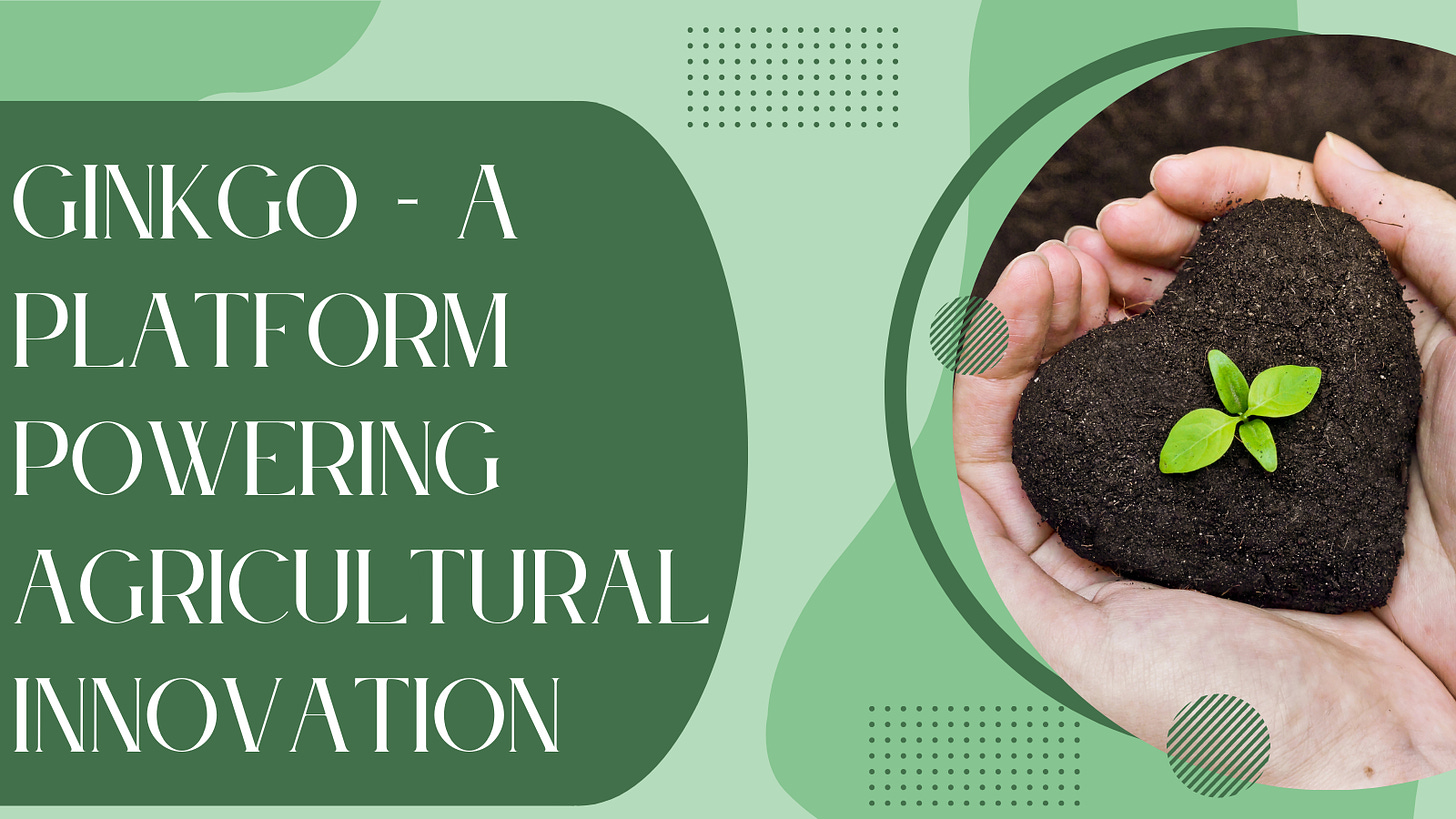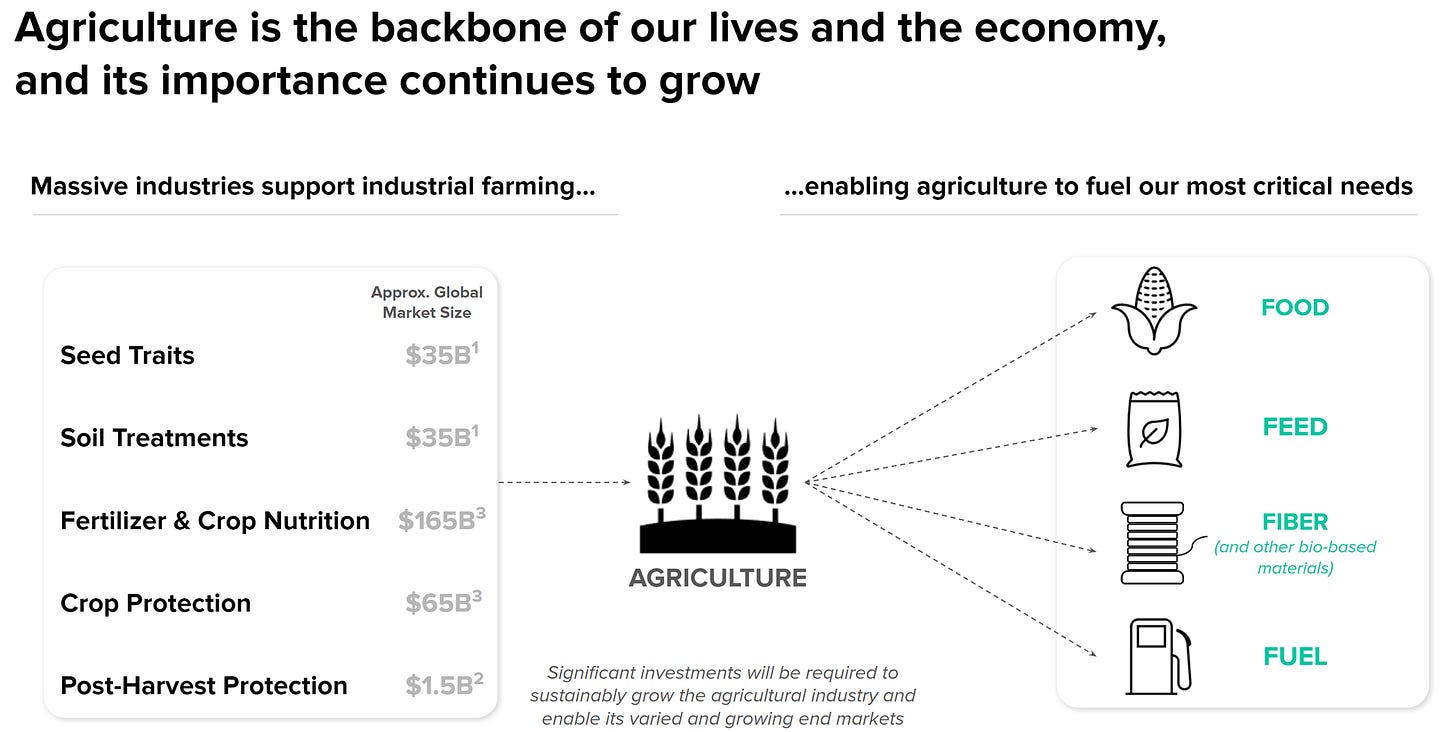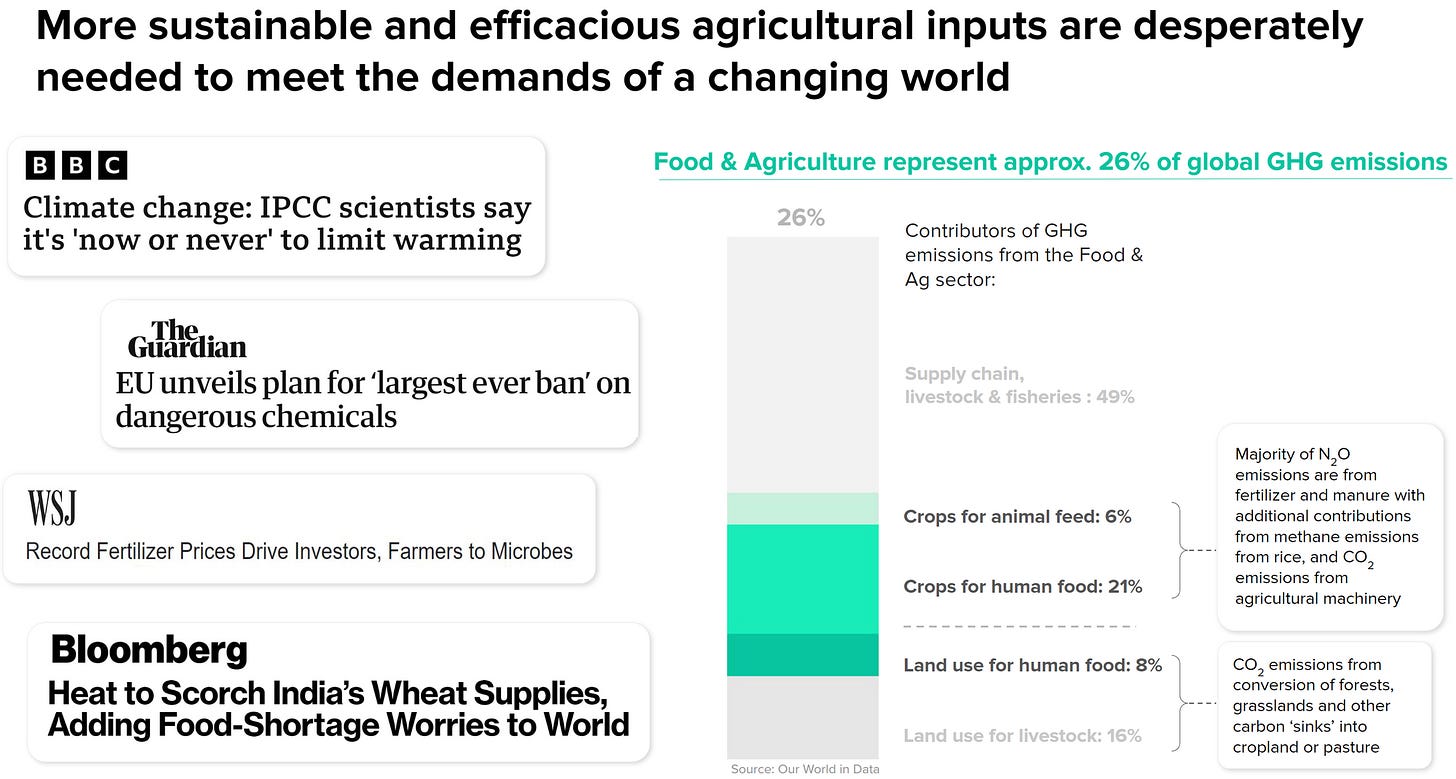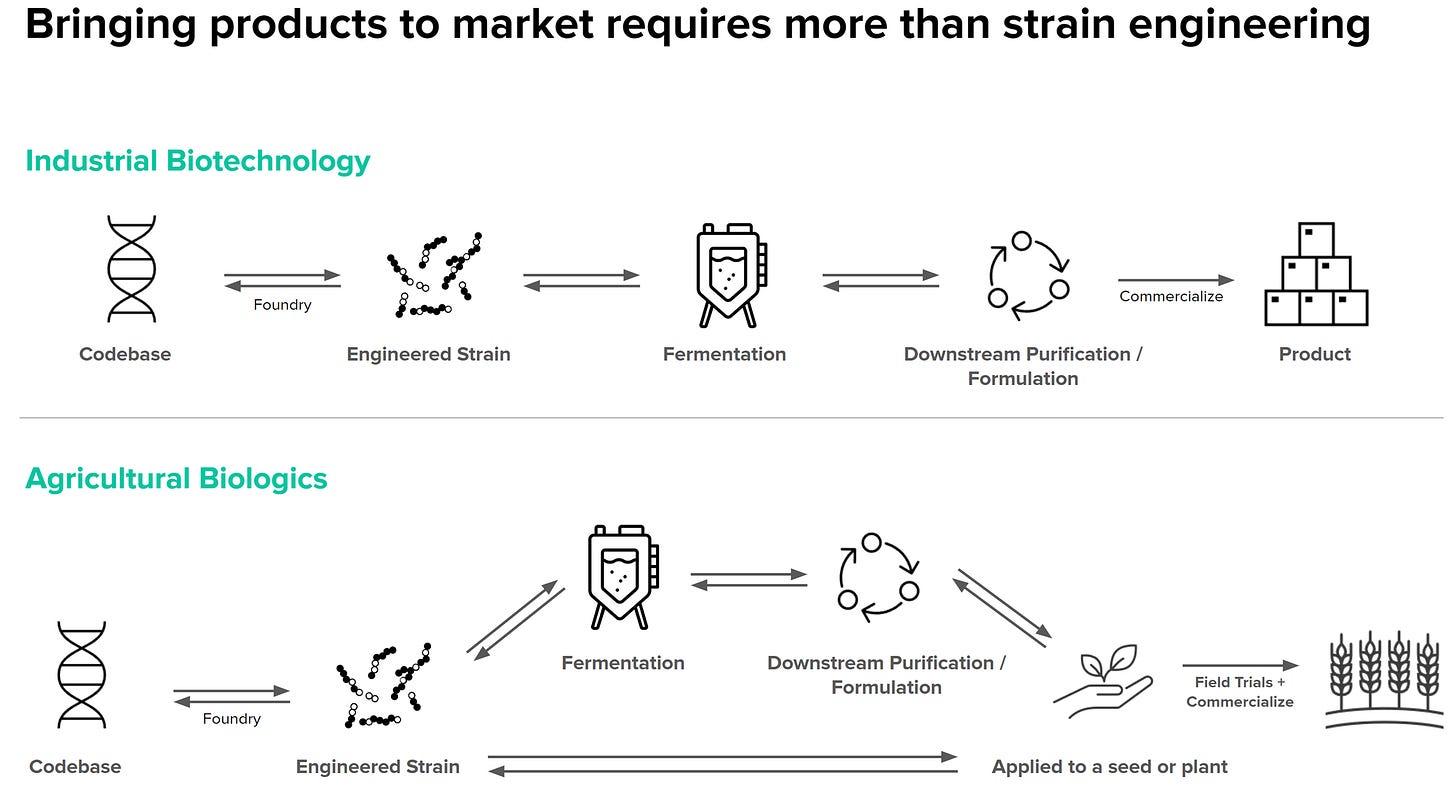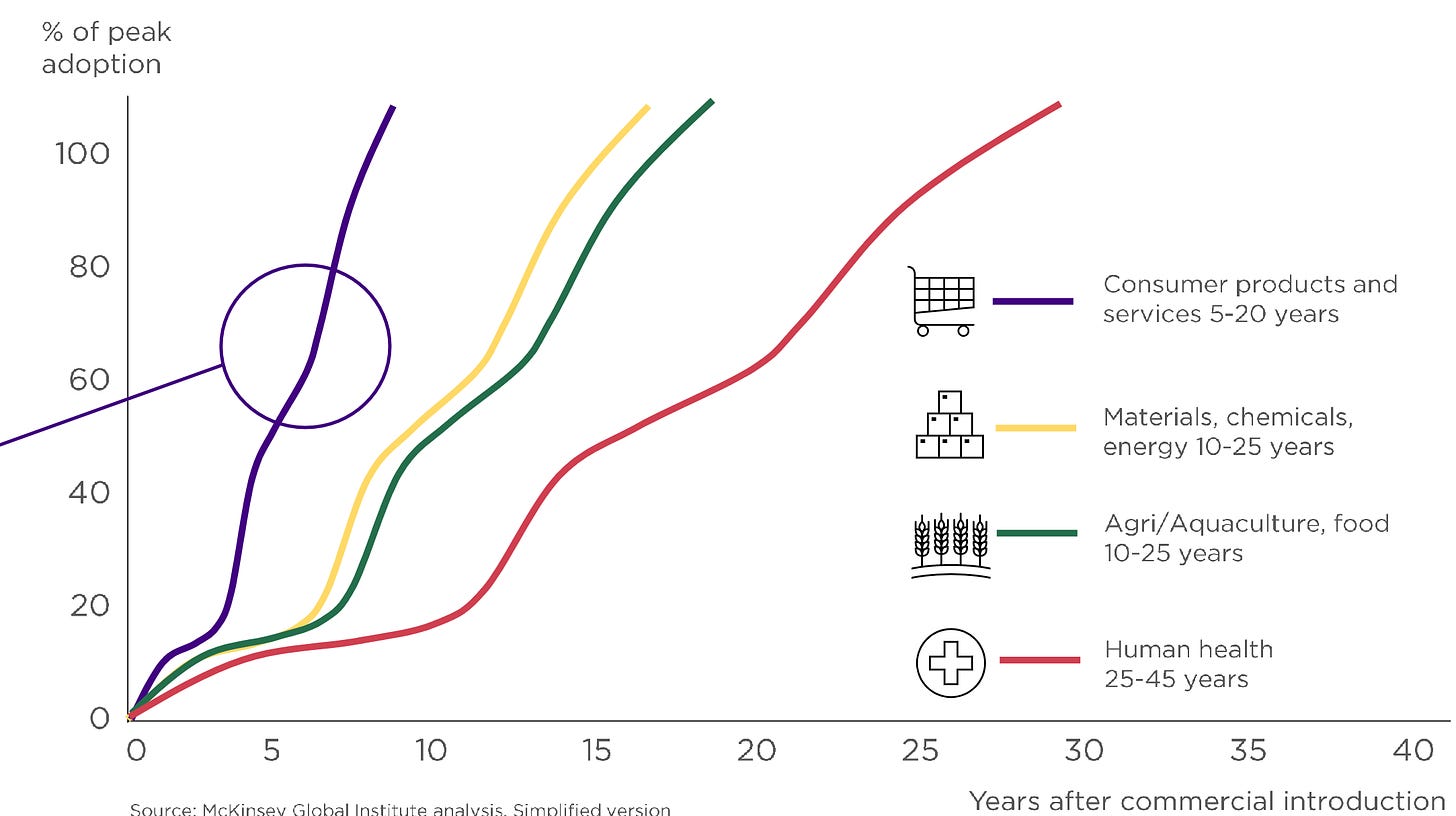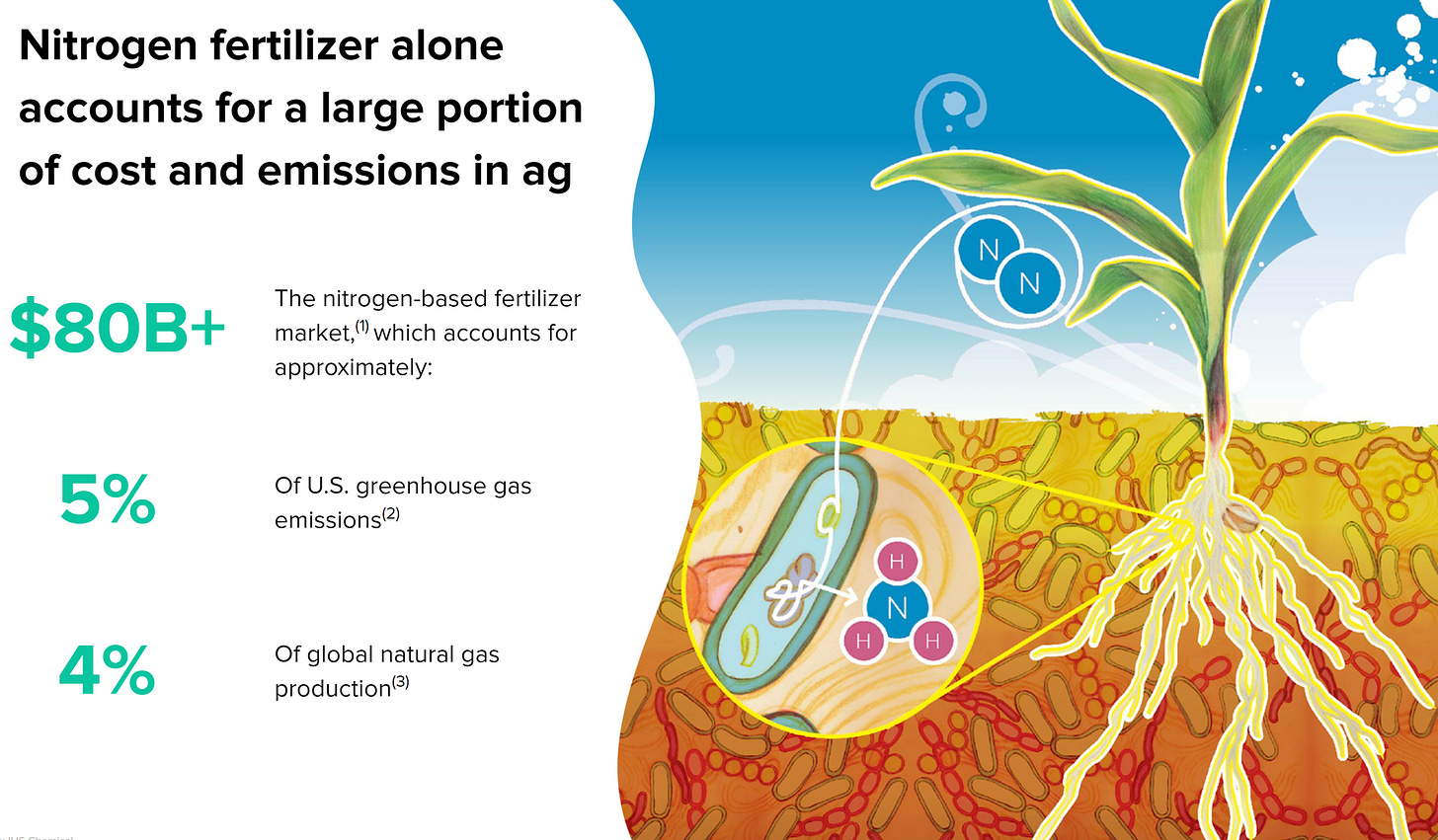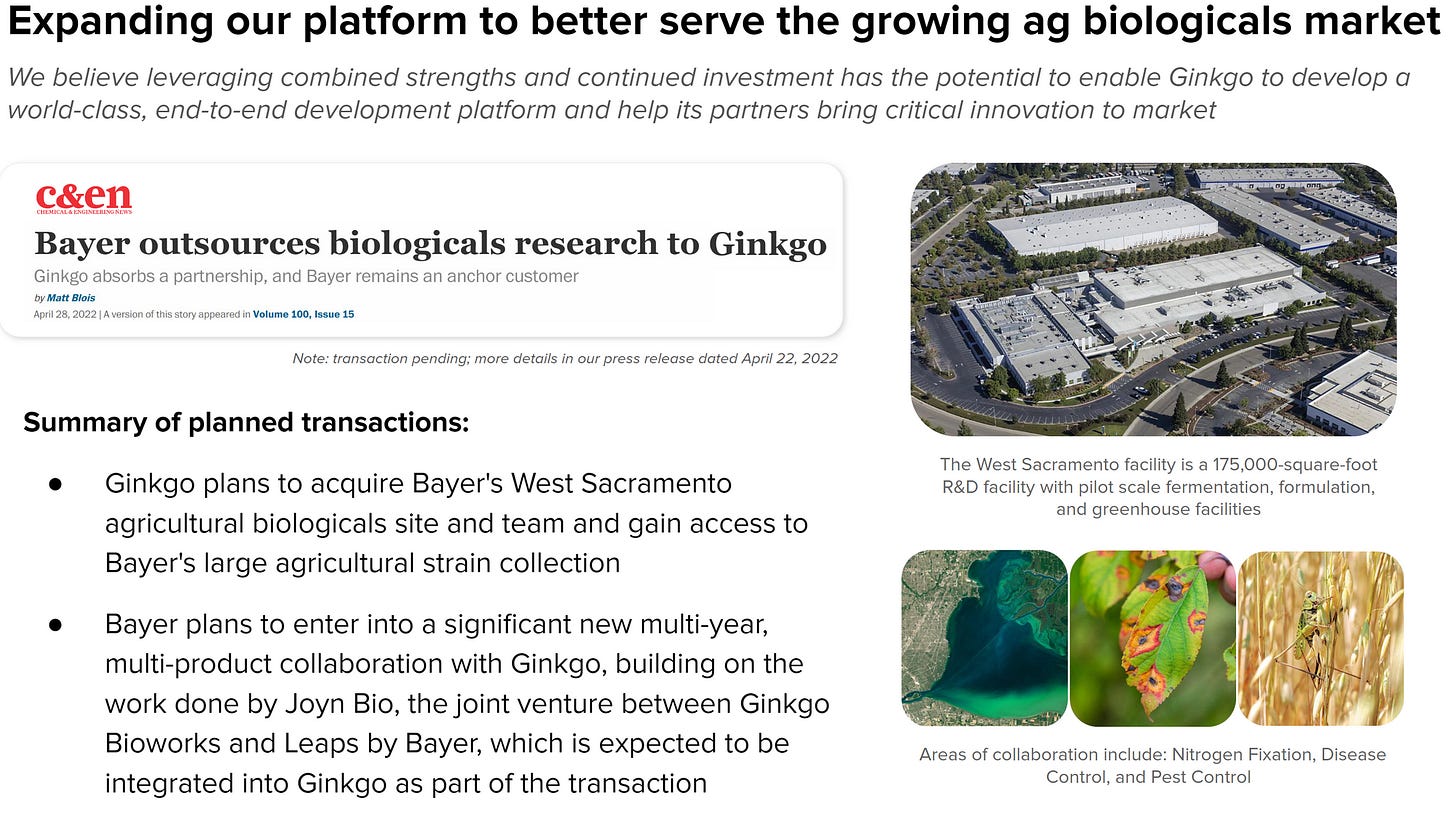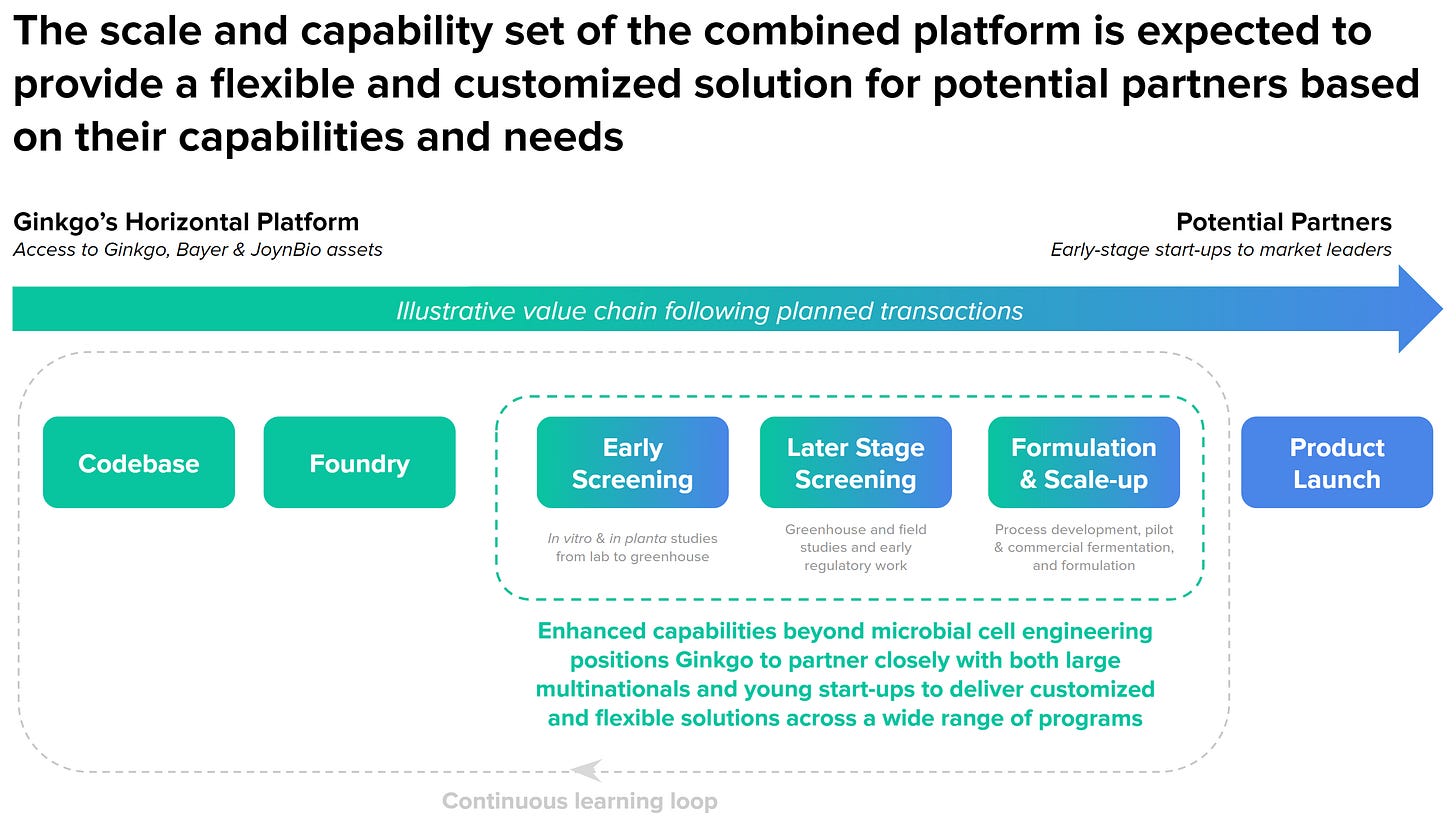Ginkgo - A Platform Powering Agricultural Innovation
We learn how Ginkgo is building a platform for agricultural innovation
Disclaimer: The information provided is not financial, investment, tax, or other advice. Nothing contained constitutes a solicitation, recommendation, endorsement, or offer to buy or sell securities or other financial instruments. For more information, read the disclaimer.
Before we learn how Ginkgo is building a platform for agricultural innovation, let's see why Ginkgo wants to enter this market.
Why Agriculture?
First and foremost agriculture is the basis of human existence. Food is the most essential resource consumed by us and there are multiple billion-dollar industries surrounding the food industry. Check out the market sizes of the industries supporting the agriculture industry.
Agricultural biologicals are a rapidly growing category of solutions that offer tremendous sustainability and performance benefits. Against the backdrop of rising fertilizer costs and novel pest and disease threats, growers are calling for new agriculture solutions that can increase yields while decreasing their environmental footprint. While chemical and plant trait solutions have long been the dominant solutions on the market, demand for biologicals has increased dramatically.
But most of the inputs for agriculture are produced in an unsustainable way and cause bad effects on the environment(agricultural runoff into drinking water etc). Also, these industries produce 26% of the greenhouse gas emissions. This does imply that targeting and disrupting these industries will definitely influence rapid progress in sustainability efforts for our planet.
But changing these industries without using a replacement for chemicals is an extremely challenging engineering effort not only involving strain engineering but also application of those strains to seeds/plants and running field trials to get approvals for the fertilizers and mass commercialization(mass production) of the fertilizers. This process is quite similar to what Ginkgo is already doing at scale with BioTech and looks like a great adjacency/opportunity for Ginkgo to explore.
Also, adoption rates for the agriculture industry have a time lag of 10-25 years. What does this mean? It means that if Ginkgo is successful in enabling this innovation and secures a first-mover advantage in a lot of agricultural products, Ginkgo can secure their royalties/milestone payments for a duration of more than a decade without their customers having to reinvent the products for 10+ years. I think this is definitely an expansion of their moat and provides long-term durability.
Why Now?
The tools and techniques needed to engineer a microbe to fixate nitrogen for plants(synthetic biology) have only become available in the last decade and are something Ginkgo has a lot of experience on.
So what is Ginkgo doing to capture this market opportunity?
Well, Ginkgo had its eye on this opportunity in 2017. They had a joint-venture between Ginkgo and Leaps by Bayer formed in 2017 called Joyn Bio.
So What is Joyn Bio?
Joyn Bio is working to engineer a microbe that would allow corn, wheat, and rice farmers to cut their use of nitrogen fertilizer by half while maintaining the same crop yield. Nitrogen fertilizers are a climate problem both in the greenhouse gas emissions generated to produce them and in the water damage the runoff causes. They are also extremely expensive right now.
So how is Ginkgo building this platform for agricultural innovation?
Ginkgo recently announced that they want to build the platform for agricultural biologicals, from discovery to field by acquiring Bayer's 175,000-square-foot West Sacramento Biologics Research & Development site, team, and internal discovery and lead optimization platform as well as integrate the R&D platform assets from Joyn Bio, a joint-venture between Ginkgo and Leaps by Bayer formed in 2017.
Bayer will be the anchor agricultural customer of Ginkgo's expanded platform, entering into a significant new multi-year collaboration that will focus on the advancement of Joyn's marquee nitrogen fixation program, as well as new programs in areas such as crop protection and carbon sequestration.
Bayer, Ginkgo, and Joyn share a common vision, which is to enable biological products to be a critical part of the solution to the world's greatest agricultural and environmental challenges, We are incredibly impressed by the success of the Joyn team and the deep expertise of Bayer's West Sacramento R&D team and are thrilled to have them join Ginkgo as we build deep end-to-end capabilities in ag biologicals on top of our large scale horizontal platform. We believe we're bringing together the most innovative minds in agriculture with the experience of a team that has brought several effective biological products to market for Bayer - opening this platform up to the world has the potential to truly revolutionize the field.
- Jason Kelly, CEO, and co-founder of Ginkgo Bioworks
Bayer has long been committed to expanding its product offerings to benefit growers around the world. In recent years, the company has made a strategic decision to focus on becoming the preferred research, development and commercial partner in the biologicals segment, while leveraging an "open innovation" model to be able to partner broadly with disruptive discovery companies. Through this agreement, Bayer is committing to a significant multi-year collaboration, advancing multiple programs including a marquee nitrogen fixation program as well as a suite of other programs in areas such as next-generation crop protection and carbon sequestration.
Over the last five years, Joyn has developed a new class of microbial solutions in partnership with Bayer and Ginkgo. Through this transaction, Joyn's product concepts will be advanced by Bayer, with a particular focus on its nitrogen fixation program.
While the platform assets and supporting team members will be integrated into Ginkgo as the company expands its support for agricultural biologicals. Ginkgo will also offer these capabilities to a wide variety of customers in agriculture as it expects to provide a full stack of services in this field, allowing companies of all sizes to access best-in-class lab-to-field translation expertise, greenhouse capacity, formulation capabilities, and pilot fermentation.
Lastly but extremely important Ginkgo will get access to Bayer's large agricultural strain collection. This access to Bayer's IP will also be a huge moat for Ginkgo and would form the basis of a lot of future innovations.
If you love this article and my work, I urge you to subscribe and share.
Thanks, take care.
Chet @ Modern Growth Investing




